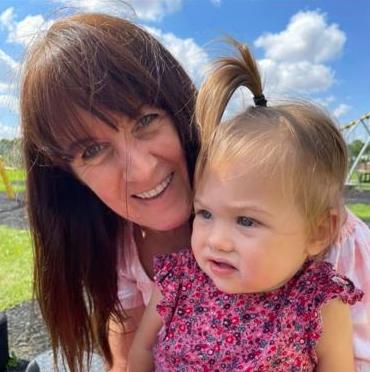Fiona Brook has been fostering for over six years now, after originally seeing an advert on television years before she decided to seriously consider it.
During her fostering journey she has looked after a number of children and young people, many who have had challenges with their mental health. Despite being something that initially daunted her, Fiona has found that with the help of ISP, she can be the support network missing from a young person’s life.
Initially, Fiona had looked into fostering with her partner at the time, having found information about ISP online. When her relationship broke down, she feared she would be unable to continue with the process and that she wouldn’t be accepted as a single parent.
Fiona explained: “We started the process and during the background checks, I realised the relationship wasn’t working. I phoned up the assessor in floods of tears because I thought they weren’t going to accept me on my own. They were fantastic though, they told me to take some time after the break-up and that we could move forward once I had sorted everything out. It was the best thing I ever did!”
Fiona decided to move forward with her fostering application and did so as a single foster parent, something she now knows isn’t a barrier. She recognises there are aspects of being a foster carer that aren’t easy, but knows communication and honesty are the only ways to make the relationship work.
As a foster parent who supports young people who struggle with their mental health, not only is communication important for their personal relationships, but also to support the children to open up and start to work on their mental health. This is something that ISP provides lots of training on as Fiona explained: “We have mental health training to equip us for looking after the young people that come to live with us, but putting this advice into practice is when you really learn. You have to encourage them to open up and help them feel they’re in an environment where it’s safe to do that. It’s about building trust and helping them to feel that they are important. Everything you go through is a lesson learned. Whether it’s good or bad.”
Fiona believes the dialogue around this kind of thing is crucial to a successful foster parent-child relationship. She believes that fostering is a wonderful thing to do for young people, but has been in challenging situations as a foster parent and has dealt with issues such as self harm, suicidal thoughts, pregnancy and jealous behaviour, but she knows this is exactly why her role is so important.
She spoke about her foster parenting style, saying: “I do try to make a lot of things light-hearted. I am strict but fair with my rules and boundaries – no raised voices, just us talking adult to young adult. I encourage lots of discussions around our thoughts and feelings, mine and theirs, so that these children know they can be honest with me and I’ll support them.”
Both ISP and Fiona acknowledge the impact fostering can have on someone’s mental health, which is why the agency offers regular training and support that enables foster parents to deal with any particularly difficult situations. This is something Fiona credits with helping her through her foster care journey. Teamed with learning something new with each child that stays with her, Fiona believes it becomes easier to understand the needs of the children she looks after.
Fiona explained: “Each section of training you do, you learn something new. Something you might have missed previously – and it refreshes your knowledge. You learn something different from every child you look after. I always stress that I am not here to replace mum or dad, I’m just here to help whilst mum or dad aren’t able to. And I say that to every child that I have.”
Understanding the process leading up to a child’s time in care is one of the most important aspects of being a foster parent, Fiona believes. Family relationships can often be complex and confusing for children in care, Fiona said: “These children have often been taken away from their family and other siblings, from everything they’ve known their whole lives which can be a very lonely time. It’s so important to have that compassion and understanding of what these children are going through. Welcoming a child into my home and allowing them to become part of my family can make all the difference.”
Despite the fact Fiona has had challenging times, she doesn’t regret her move into foster care: “I would be lying if I said it wasn’t hard, there have been times when I’ve struggled. But it’s so rewarding when you develop a bond with a child and they begin to trust you. There’s nothing like it.”




